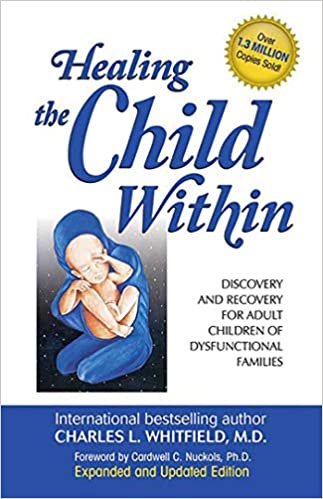
On page one of Charles L. Whitfield’s “Healing the Child Within,” a book that has sold millions of copies since it was published in 1987, the author writes:
“Denial of the Child Within and the subsequent emergence of a false self or negative ego are particularly common among children and adults who grew up in troubled families, such as those where chronic physical or mental illness, rigidity, coldness, or lack of nurturing were common.”
Of course, I read it through the eyes of an adoptee, and it certainly resonates. Published in 1987, it does not surprise me that no where in the book does the author specifically mention adoption trauma as a potential threat to developing a healthy inner child. He does write, however, “the gradual accumulation of unfinished mental and emotional business can lead to chronic anxiety, fear, confusion, emptiness and unhappiness.” Again, “Yep, that’s me.”
Interestingly, this book was published about the same time as the ACE (Adverse Childhood Experiences) study. The ACE study, performed in 1995 by the Centers for Disease Control and the Kaiser Permanente health care organization in California, defines ACEs as traumatic events that occur before a child reaches the age of 18. The higher one’s score, the more likely they are to suffer with behavioral, physical illnesses (such as heart problems, cancer and COPD), as well a mental health problems later in life.
That study later lead to an interesting UK study “Adverse Childhood Experiences of Children Adopted from Care” published in 2019 by the Centre for the Development and Evaluation of Complex Interventions for Public Health Improvement at Cardiff University. That study states, “there is currently little research on the vulnerability of adoptees to ACEs, despite many studies showing that adopted children demonstrate more emotional and behavioral problems than children in the general population.” If you want to learn more about ACE and learn your ACE score, you can use the tool provided here in the very well done ACE article on NPR. I would love to see Whitfield write a book called, “Healing the Adopted Child Within.”
Ah yes, back to the book that took me down this fascinating rabbit hole. Although “Healing the Child Within” never addresses adoption trauma head on, it is a powerful read and offers a path toward reckoning with and potentially resolving childhood trauma. And while I could pull passages out of it all day long and say “see here again”, this sounds like Whitfield describes common emotional struggles reported by many adoptees, I will just suggest you give it a read.
The inspiration for this blog post is not just that I found a good book for adoptees and wanted to share an interesting study on adverse childhood experiences, which I did, but it is also inspired by my desire to share this poem “Please Hear What I Am Not Saying,” by Charles C. Finn, included by Whitfield on pages 13 through 15. Like many passages in this book, this poem speaks especially to this adoptee. It dives into that desperate place where we long to trust and be loved, but we fear vulnerability, getting close and ultimately rejection. Since this poem explores the emotional chasms encountered in all my relationships, romantic or otherwise, I thought I would share it here if it touched some of you as it touched me.
Please Hear What I Am Not Saying
By Charles C. Finn
Don’t be fooled by me. Don’t be fooled by the face I wear for I wear a mask, a thousand masks, masks that I’m afraid to take off, and none of them is me. Pretending is an art that’s second nature with me, but don’t be fooled, for God’s sake don’t be fooled.
I give you the impression that I’m secure, that all is sunny and unruffled with me, within as well as without, that confidence is my name and coolness my game, that the water’s calm and I’m in command and that I need no one, but don’t believe me.
My surface may seem smooth but my surface is my mask, ever-varying and ever-concealing. Beneath lies no complacence. Beneath lies confusion, and fear, and aloneness. But I hide this. I don’t want anybody to know it. I panic at the thought of my weakness exposed. That’s why I frantically create a mask to hide behind, a nonchalant sophisticated facade, to help me pretend, to shield me from the glance that knows.
But such a glance is precisely my salvation, my only hope, and I know it. That is, if it’s followed by acceptance, if it’s followed by love. It’s the only thing that can liberate me from myself, from my own self-built prison walls, from the barriers I so painstakingly erect. It’s the only thing that will assure me of what I can’t assure myself, that I’m really worth something.
But I don’t tell you this. I don’t dare to, I’m afraid to. I’m afraid your glance will not be followed by acceptance, will not be followed by love. I’m afraid you’ll think less of me, that you’ll laugh, and your laugh would kill me. I’m afraid that deep-down I’m nothing and that you will see this and reject me.
So I play my game, my desperate pretending game, with a facade of assurance without and a trembling child within. So begins the glittering but empty parade of masks, and my life becomes a front. I tell you everything that’s really nothing, and nothing of what’s everything, of what’s crying within me.
So when I’m going through my routine do not be fooled by what I’m saying. Please listen carefully and try to hear what I’m not saying, what I’d like to be able to say, what for survival I need to say, but what I can’t say.
I don’t like hiding. I don’t like playing superficial phony games. I want to stop playing them. I want to be genuine and spontaneous and me but you’ve got to help me. You’ve got to hold out your hand even when that’s the last thing I seem to want. Only you can wipe away from my eyes the blank stare of the breathing dead. Only you can call me into aliveness. Each time you’re kind, and gentle, and encouraging, each time you try to understand because you really care, my heart begins to grow wings– very small wings, very feeble wings, but wings!
With your power to touch me into feeling you can breathe life into me. I want you to know that. I want you to know how important you are to me, how you can be a creator, an honest-to-God creator, of the person that is me if you choose to.
You alone can break down the wall behind which I tremble, you alone can remove my mask, you alone can release me from my shadow-world of panic, from my lonely prison, if you choose to. Please choose to.
Do not pass me by. It will not be easy for you. A long conviction of worthlessness builds strong walls. The nearer you approach to me the blinder I may strike back. It’s irrational, but despite what the books say about man often I am irrational. I fight against the very thing I cry out for. But I am told that love is stronger than strong walls and in this lies my hope. Please try to beat down those walls with firm hands but with gentle hands for a child is very sensitive.
Who am I, you may wonder? I am someone you know very well. For I am every man you meet and I am every woman you meet.

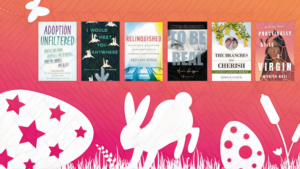
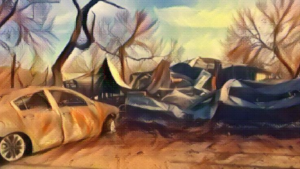
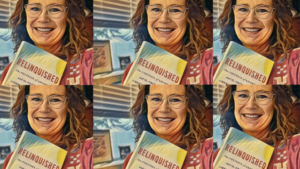
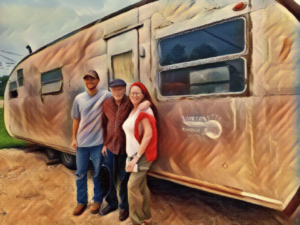



One Response